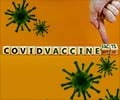A new study examined whether COVID-19 diagnosis and death were related to the large doses of folic acid prescribed to patients for various reasons.

Role of Folic Acid in Health
A Folic acid is a synthetic form of vitamin B9, also known as folate. Low levels of B9 are associated with health conditions such as an increased risk of heart disease, stroke, and birth defects. Folic acid is prescribed for several conditions, including sickle cell disease, high-risk pregnancies, and people receiving anti-seizure medications. It is also prescribed to help offset some side effects for patients taking cancer-treating drugs.Folic Acid Intake and COVID-19 Infection?
Researchers looked at folic acid and methotrexate prescription data from 2019 to 2021 in 380,380 participants in the UK Biobank. They identified 26,033 individuals with COVID-19, of whom 820 died from COVID-19. People with methotrexate prescriptions were diagnosed with COVID-19 at a similar rate to the general study population.‘Avoid extremely high doses of folic acid unless it is medically indicated in people who are not vaccinated against COVID-19 infection.’





However, people with a folic acid prescription were diagnosed with COVID-19 infections at a higher rate (5.99 percent) and had a much higher COVID-19 mortality rate (15.97 percent) than the control group.These findings could have implications for patients who take supplementary folate to prevent complications of other pharmacological therapies. Although taking folate in these cases is indicated, clinicians should be cautious about excessive folate intake.
The current findings are limited to people 45 years of age and older who are predominantly from White European ethnicities of the UK population. The study did not look at the blood folate levels of the participants.
Further investigations are needed to explore the impact of folate status and folic acid intake on susceptibility to COVID-19 infection and its fatal complications.
Advertisement















